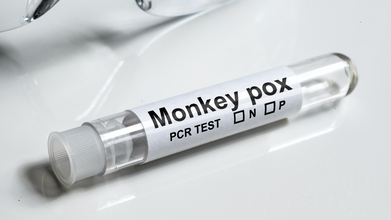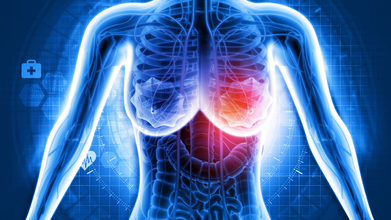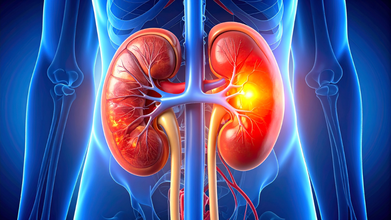- Health Conditions A-Z
- Health & Wellness
- Nutrition
- Fitness
- Health News
- Ayurveda
- Videos
- Medicine A-Z
- Parenting
How Can You Tell If Your Metabolism Is Slowing Down?

Metabolism plays a big role in our health, it’s not just about helping your digestive system work smoothly, but the way your body breaks down the food and helps nutrients get absorbed into the body that matters. But often due to one reason or the other, your metabolism can slow down, which then causes issues with people. Many people think that the reason they may be gaining weight could be because of their poor metabolism, so how does one go about fixing this issue and how do you even know that the fault lies with your metabolism.
To understand why your metabolism may be slowing down, we must understand what role it exactly plays. Metabolism is the process your body uses to turn food into energy. It's essential for everything from breathing and digestion to keeping you warm. Several things affect how fast your metabolism works, including your genes, health, and lifestyle. A slow metabolism means your body burns fewer calories, which can lead to tiredness, dry skin, weight gain, and cravings.
Why Does Your Metabolism Slow Down?
There can be many reasons why your metabolism may be slowing down. You inherit some of it, and it tends to slow down as you age, often due to changes in your body and less muscle. Men and women have different metabolisms because of body size, makeup, and hormones. What you eat matters too – not enough healthy food or a very low-calorie or high-fat diet can slow it down. A lazy lifestyle, lack of sleep, and stress can also make your metabolism sluggish. Certain health problems like diabetes or an underactive thyroid, and even environmental factors, may also play a role.
Signs You Need To Improve Your Metabolism
While these are some common signs, it is best to visit a healthcare professional and ask for their opinions before you try a solution. There are many underlying reasons as to why you are experiencing slow metabolism, it can also be a side-effect of some medicine. A healthy lifestyle goes a long way, especially for people who already have digestive issues, kidney or even mental health issues like stress and anxiety.
Constant Fatigue
Feeling tired all the time, even without a good reason, could mean your metabolism is slow. A slow metabolism means your body breaks down food into energy slowly, leaving you with low energy levels. You might feel sluggish or get tired easily throughout the day. Changes in what you eat or your body composition (how much fat and muscle you have) can also make you feel more tired.
Dry Skin
Dry skin is common in winter, but if you have it all the time, it could be a sign of a slow metabolism. Thyroid hormones help control your metabolism and also keep your skin hydrated. If your thyroid isn't working right and your metabolism is slow, your skin might get very dry.
Weight Gain
If you're eating healthy and exercising but still gaining weight, a slow metabolism could be the problem. A slow metabolism doesn't turn food into energy quickly, so you burn fewer calories. Extra calories are stored as fat, making it hard to lose weight.
Feeling Cold
Feeling cold even when it's not cold outside can be a sign of a slow metabolism. Your body generates heat through metabolism. If your metabolism is slow, your body temperature might be lower. Some studies show that people with an underactive thyroid or obesity may have lower body temperatures because of a slow metabolism. This can be because of problems with thyroid hormones, which help your body make heat.
Food Cravings
Craving sugary or fatty foods can be a sign of a slow metabolism. Studies show that cravings are related to metabolic health. This is especially true for people who don't eat enough healthy foods, have bad eating habits, or have low muscle mass and high fat mass. Cravings might also mean your body isn't getting enough energy from the food you eat, so it wants more energy.
Mood Swings
Everyone has mood swings sometimes. But if you have them often, it could be from a slow metabolism. Low energy and hormone problems that come with a slow metabolism can make you irritable and frustrated. Some older research also suggests a link between mental health issues and a slow metabolism.
Digestive Problems
Digestion and metabolism are connected. Digestion breaks down food, and metabolism turns it into energy. If your metabolism changes, like slowing down, it can affect your digestion. A slow metabolism can cause constipation, bloating, or diarrhea.
German Study Shows Squirrels May Be Harboring Mpox Virus

Credit: Canva
Squirrels could be natural hosts of the mpox virus (MPXV) -- that causes monkeypox disease -- according to a recent study by German researchers.
The team from the Helmholtz Institute for One Health (HIOH) identified the fire-footed rope squirrel (Funisciurus pyrropus) as a likely natural reservoir of the MPXV.
The study published in the journal Nature revealed that sooty mangabeys – a primate found in West Africa -- can contract mpox by eating infected squirrels. The disease may present mild lesions, but it can also cause more severe skin lesions or even be fatal.
"Identifying the animal sources of the virus and the exposure routes that lead to inter-species transmission are key steps towards understanding spillover mechanisms and developing effective prevention measures to mitigate the risk of transmission to humans," said Livia V. Patrono, one of the senior authors at HIOH.
Squirrels Suspected MPXV Hosts
While squirrels have long been suspected as potential reservoirs for MPXV, their role was confirmed after an investigation of an mpox outbreak among wild sooty mangabeys (Cercocebus atys) in Côte d'Ivoire.
During the outbreak, reported in early 2023, nearly one-third of the primates showed clinical signs of disease, and four infants died.
The team conducted viral genome sequencing and found that the infected monkeys carried a virus that was nearly identical to an MPXV strain identified in a fire-footed rope squirrel found dead 12 weeks earlier nearby.
Further, the team analyzed fecal samples from the mangabeys. A sample collected eight weeks before the outbreak's onset contained DNA from both the virus and the rope squirrel. This provided strong evidence of interspecies transmission at that moment.
Sooty mangabeys have been previously observed catching and eating fire-footed rope squirrels, which provide a direct route for the transmission of viruses.
Mpox Continues To Spread Globally
Although mpox is no longer a public health emergency, outbreaks of clade I and clade II strains of the mpox virus are continuing in many countries around the world, especially in Africa.
Last week, Madagascar announced the country's first death from mpox, a 3-year-old girl from the island nation’s eastern city of Toamasina.
The WHO has also confirmed that two cases of the recombinant strain – combining genomic elements of clades Ib and IIb of the monkeypox virus (MPXV) – have been identified to date: one in the United Kingdom and one in India.
Mpox is an infectious disease caused by the monkeypox virus (MPXV), part of the Orthopoxvirus genus, which also includes the virus that causes smallpox.
It spreads through close physical contact, including sexual contact, and in some cases through contaminated materials or respiratory droplets.
Symptoms typically include fever, swollen lymph nodes, rash, and/or lesions.
The global health body has also urged all countries to “remain alert to the possibility of MPXV genetic recombination.” It has also urged for continued epidemiological surveillance, sequencing, vaccination of at-risk groups, and infection prevention and control measures.
This AI Tool Predicts Women’s Breast Cancer Risk Up to Four Years

Credit: Canva
An international group of scientists has created an artificial intelligence tool that can estimate a woman’s likelihood of developing breast cancer within the next four years.
The AI tool, known as the BRAIx risk score, analyzes mammogram images to generate an individualized risk assessment and flag women who may face a higher chance of developing the disease.
It may not only show the current risk but also predict the future risk, enabling early detection and treatments for a better outcome.
According to the findings published in The Lancet Digital Health journal, nearly one in 10 women ranked in the top 2 percent of risk by the AI tool were diagnosed with breast cancer within four years. This was despite previously receiving a clear screening result.
“These risk scores enable future development of personalized screening pathways to transform population breast cancer screening and save lives,” said corresponding author Helen M. L. Frazer of the University of Melbourne.
Frazer noted that identifying women who appear cancer-free but carry very high risk -- comparable to those with inherited BRCA1 or BRCA2 mutations -- will unravel both hereditary and non-hereditary causes of breast cancer.
From one-size-fits-all screening to personalization
Breast cancer screening programs have significantly lowered mortality rates -- by roughly 40-50 percent among women aged 50 to 74. However, most screening systems still apply the same approach to all women, regardless of individual risk.
Traditional screening tools use genetics, breast density, and questionnaires to estimate breast cancer risk. On the other hand, new AI-based screening tools, such as BRAIx personalizes screening by gathering information already present in breast scan images to better identify who is at higher risk.
“Our results show that conventional mammographic density is a far weaker predictor of breast cancer risk than the BRAIx risk score, even for interval cancers,” the researchers said in the paper. Interval cancers are aggressive tumors diagnosed after a negative mammogram.
The BRAIx Tool
The BRAIx risk score was developed using mammograms from nearly 400,000 women. To prove its efficacy, the AI tool was tested on data from almost 96,000 women from Australia and then confirmed in an independent Swedish population of over 4,500 women.
The findings showed that:
- The BRAIx risk score estimated breast cancer risk more accurately than the traditional risk factors, such as breast density, country of birth, and even family history.
- For the top 2 percent of women with the highest BRAIx risk score, the probability of a cancer diagnosis within 4 years was 9.7 percent -- a risk level exceeding that typically seen in women with inherited BRCA1 or BRCA2 mutations.
The BRAIx risk score can:
- Make breast screening more personalised,
- Improve early cancer detection,
- Reduce false alarms,
- Save lives without increasing costs
Global Breast Cancer Burden
Breast cancer continues to be the most common cancer among women worldwide.
A recent study published in The Lancet Oncology journal predicted that the number of new cases of the deadly disease will reach more than 3.5 million globally in 2050 -- rising by a third from 2.3 million in 2023.
Annual deaths from the disease will also rise by 44 percent -- from around 764,000 to 1.4 million.
However, not smoking, getting sufficient physical activity, lowering red meat consumption, and having a healthy weight can help prevent over a quarter of healthy years lost to illness and premature death from breast cancer.
COVID Survivors At Nearly Fivefold Risk Of Kidney Failure: Study

Credit: Canva
People who survived a COVID-19 infection can be at significant risk for kidney disease, acute kidney injury, and chronic kidney disease. compared to individuals who were not infected, according to a study.
The study, published online in the journal Communications Medicine, revealed that COVID patients have
- a 2.3-times higher risk of acute kidney injury
- a 1.4-times higher risk of chronic kidney disease
- a 4.7 times higher risk of kidney failure
“While we’re in the post-pandemic era, this shows that COVID-19 history is an important variable when considering the long-term impact of the infection on kidney function and disease,” said first author Yue Zhang, who was at Pennsylvania State University, US, while conducting the study. Zhang is currently a postdoctoral scholar at Johns Hopkins Bloomberg School of Public Health.
How Was The Study Conducted?
For the study, data on over 3 million working-age adults in the United States were analyzed.
The team compared the effect of influenza, another common viral infection that affects kidney health, and people with a history of COVID infection on kidney infections.
Using a machine learning model, the individuals were followed between 180 and 540 days for the emergence of new acute or sudden kidney disease.
The results showed that:
- Both COVID and the flu can worsen kidney health
- Flu caused a mild and temporary effect
- COVID increased the risk of acute kidney injury for a longer duration
- COVID survivors developed kidney disease within a few hours to a few days
- COVID patients had a longer-term chronic and end-stage kidney disease.
How COVID Worsens Kidneys Health
The Penn State researchers explained that kidney cells express high levels of the primary protein receptors that SARS-CoV-2 uses to enter and infect cells. Kidney cells also produce specialized enzymes that help viruses enter cells.
According to Kidney Health Australia, an acute COVID infection can impact the kidneys with fevers and respiratory symptoms, and/or worsening blood sugar control.
The US National Institutes of Health stated that renal dysfunction is an increasing clinical indicator of COVID propagation.
Citing several studies, the NIH said that the most common clinical manifestation is proteinuria -- found in more than half of the COVID patients. In addition, hematuria, elevated blood urea nitrogen, and elevated serum creatinine are other common features in Covid survivors with poor kidney health.
Nasr Ghahramani, Professor of Medicine at Penn State College of Medicine, stressed the need for COVID survivors, especially those with diabetes and high blood pressure, to take "more frequent and more prolonged monitoring of their kidney function" to enable early detection and better outcomes.
© 2024 Bennett, Coleman & Company Limited

